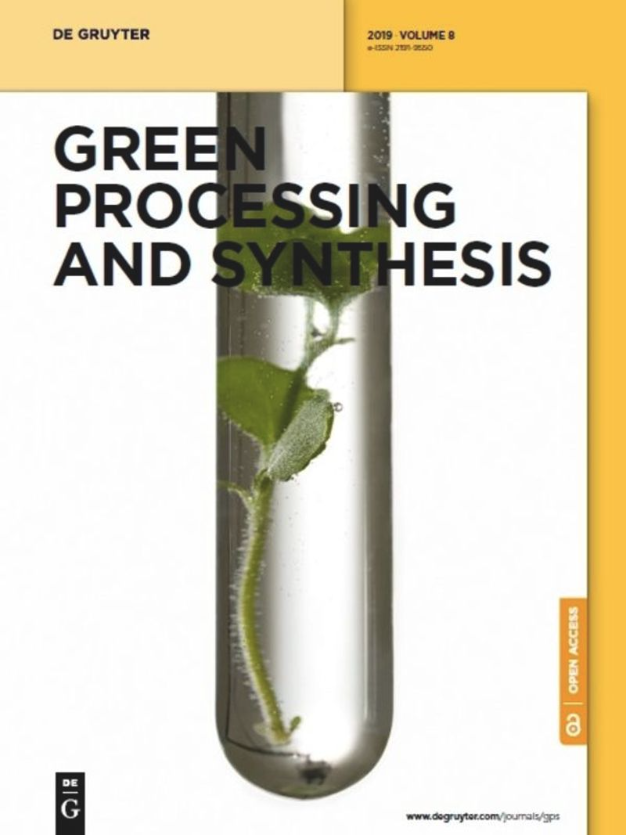Chitosan nanoparticles loaded with mesosulfuron methyl and mesosulfuron methyl + florasulam + MCPA isooctyl to manage weeds of wheat (Triticum aestivum L.)
IF 3
4区 工程技术
Q2 CHEMISTRY, MULTIDISCIPLINARY
引用次数: 0
Abstract
Abstract Nanoherbicides are articulated by empowering the potential of nanotechnology for the efficacious delivery of chemical or biological herbicides with the aid of nanomaterial‐based herbicide combinations. Therefore, the goal of this work was to investigate the chitosan nanoparticles loaded with mesosulfuron methyl and mesosulfuron methyl + florasulam + (2-methyl-4-chlorophenoxyacetic acid) MCPA isooctyl herbicides as a possible environmentally benign substitute to manage weeds in wheat. Due to intriguing characteristics including biocompatibility, low allergenicity, biodegradability, and nontoxicity, chitosan biopolymers as sustainable chitin derivatives have received intense scrutiny in the biomedical business. The manufactured nanoparticles were characterized by using ultraviolet absorbance, scanning electron microscopy (SEM), X-ray diffraction (XRD), and Fourier transform infrared spectroscopy (FT-IR). The average particle size as revealed by SEM was 40–70 nm in a cluster form with the porous structure. The maximum absorption peaks of both nanoparticles of mesosulfuron methyl and mesosulfuron methyl + florasulam + MCPA isooctyl were 330 and 360 nm. The FT-IR analysis showed an intensive peak at 2θ value of 30.55° for mesosulfuron methyl and 32.79° for mesosulfuron methyl + florasula + MCPA isooctyl, which correspond to the 78 and 198 planes of the anatase phase, respectively. The nanoparticles were sprayed at the third to fourth leaf stages of the targeted weeds. Seven different doses were applied. A total of 100% mortality and visual injury were caused by the chitosan-based nanoparticles of both herbicides at the recommended dose of standard herbicide. The 5-fold lower dose showed the minimum chlorophyll content (5.75%), plant height (2.35 cm), fresh biomass (1.08 g), and dry biomass (0.33 g) of a weed mixture. For the same traits, the herbicide nanoparticles at 10-fold lower dose of commercial herbicides exhibited a similar effect as the recommended dose. Nanoherbicides could recuperate the conventional herbicide effectiveness by enhancing the stability and reducing the toxicity.壳聚糖纳米颗粒负载甲基中磺隆和甲基中磺龙+氟拉苏拉姆+MCPA异辛基处理小麦杂草(Triticum aestivum L.)
摘要纳米除草剂通过赋予纳米技术的潜力,在纳米材料基除草剂组合的帮助下,有效地递送化学或生物除草剂。因此,本研究的目的是研究壳聚糖纳米颗粒负载中磺隆甲基和中磺隆甲基+ florasulam +(2-甲基-4-氯苯氧乙酸)MCPA异辛基除草剂,作为一种可能的环境友好型小麦杂草治理替代品。由于壳聚糖生物聚合物具有生物相容性、低致敏性、可生物降解性和无毒性等特点,作为可持续的几丁质衍生物在生物医学领域受到了广泛关注。采用紫外吸光度、扫描电镜(SEM)、x射线衍射(XRD)和傅里叶变换红外光谱(FT-IR)对纳米颗粒进行了表征。扫描电镜显示,该材料的平均粒径为40 ~ 70 nm,呈簇状多孔结构。甲基中硫隆和甲基中硫隆+ florasulam + MCPA异辛酯纳米颗粒的最大吸收峰分别为330 nm和360 nm。FT-IR分析表明,中硫隆甲基和中硫隆甲基+ florasula + MCPA异辛基在2θ值处分别有30.55°和32.79°的密集峰,分别对应锐钛矿相的78和198层。在目标杂草的第三到第四个叶片阶段喷洒纳米颗粒。使用了七种不同的剂量。在标准除草剂推荐剂量下,两种除草剂的壳聚糖基纳米颗粒均可造成100%的死亡率和视觉损伤。当剂量降低5倍时,杂草混合物的叶绿素含量最低(5.75%),株高最低(2.35 cm),鲜生物量最低(1.08 g),干生物量最低(0.33 g)。对于相同的性状,除草剂纳米颗粒在低10倍商业除草剂剂量下表现出与推荐剂量相似的效果。纳米除草剂可以通过提高稳定性和降低毒性来恢复传统除草剂的有效性。
本文章由计算机程序翻译,如有差异,请以英文原文为准。
求助全文
约1分钟内获得全文
求助全文
来源期刊

Green Processing and Synthesis
CHEMISTRY, MULTIDISCIPLINARY-ENGINEERING, CHEMICAL
CiteScore
6.70
自引率
9.30%
发文量
78
审稿时长
7 weeks
期刊介绍:
Green Processing and Synthesis is a bimonthly, peer-reviewed journal that provides up-to-date research both on fundamental as well as applied aspects of innovative green process development and chemical synthesis, giving an appropriate share to industrial views. The contributions are cutting edge, high-impact, authoritative, and provide both pros and cons of potential technologies. Green Processing and Synthesis provides a platform for scientists and engineers, especially chemists and chemical engineers, but is also open for interdisciplinary research from other areas such as physics, materials science, or catalysis.
 求助内容:
求助内容: 应助结果提醒方式:
应助结果提醒方式:


